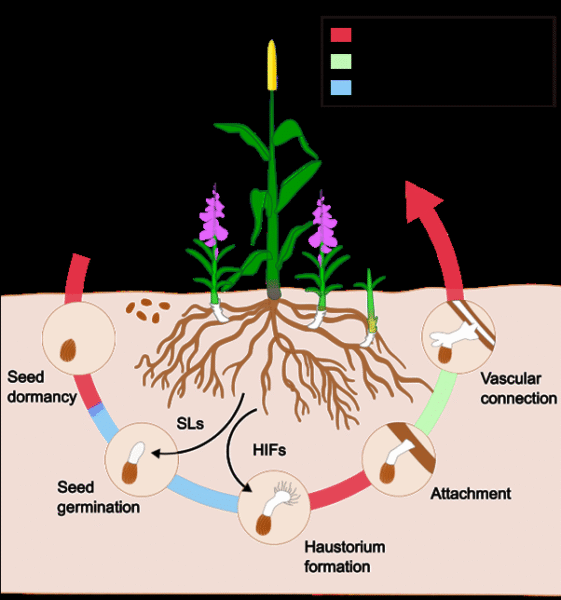Happy to present the work of postdoc Pornkanok Pongpamorn and PhD student Michelle Zwart, carried out in the Promise II project lead by Jos Raaijmakers.
Parasitic weeds from the Orobanchaceae family, particularly Striga, Orobanche, and Phelipanche spp., are responsible for substantial agricultural losses worldwide. A better understanding of the intricate chemical interaction between parasitic plants and their host crops, and the effect the rhizosphere microbiome may have on this, offers potential for developing sustainable and effective biocontrol strategies. We review the biology of parasitic plants, with a focus on host-derived signaling molecules such as strigolactones and haustorium-inducing factors that coordinate key stages of their lifecycle, and hence are potential targets for control through microorganisms. We highlight several examples of pathogenic microorganisms and plant growth-promoting rhizobacteria and fungi that have been shown to suppress parasitic weeds. These microbes act through multiple mechanisms: direct antagonism of the parasite, enhancement of the host’s defense responses, and interference with chemical signaling between host and parasite. Both laboratory and field studies are reviewed to evaluate the efficacy and future potential of these biological control agents.
For the full paper, see here
